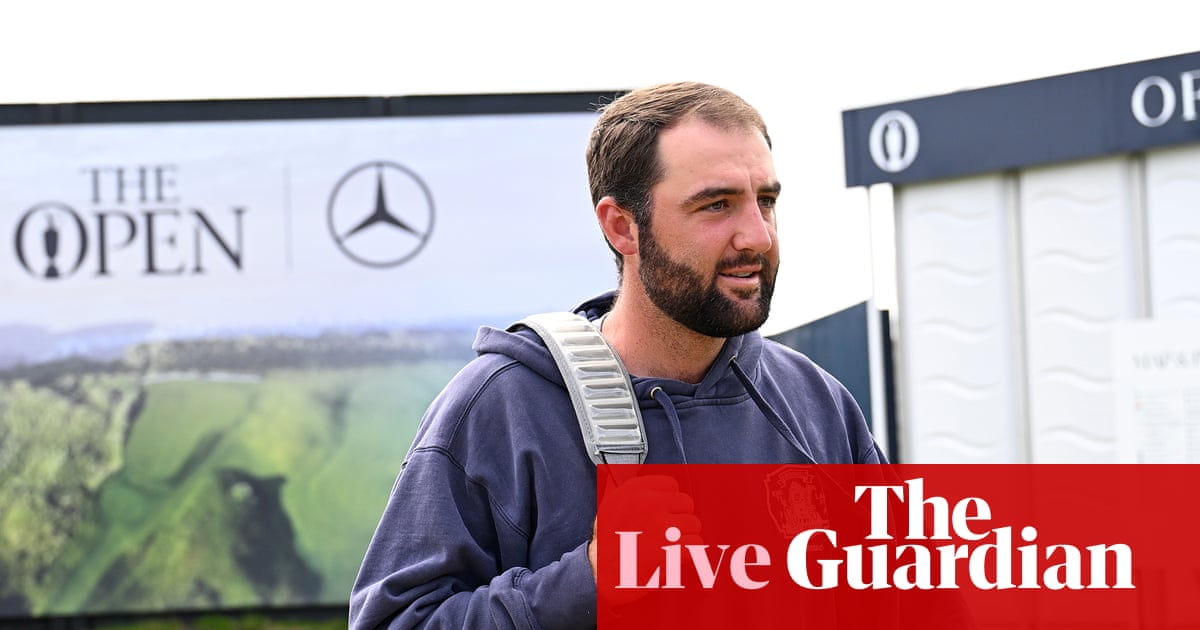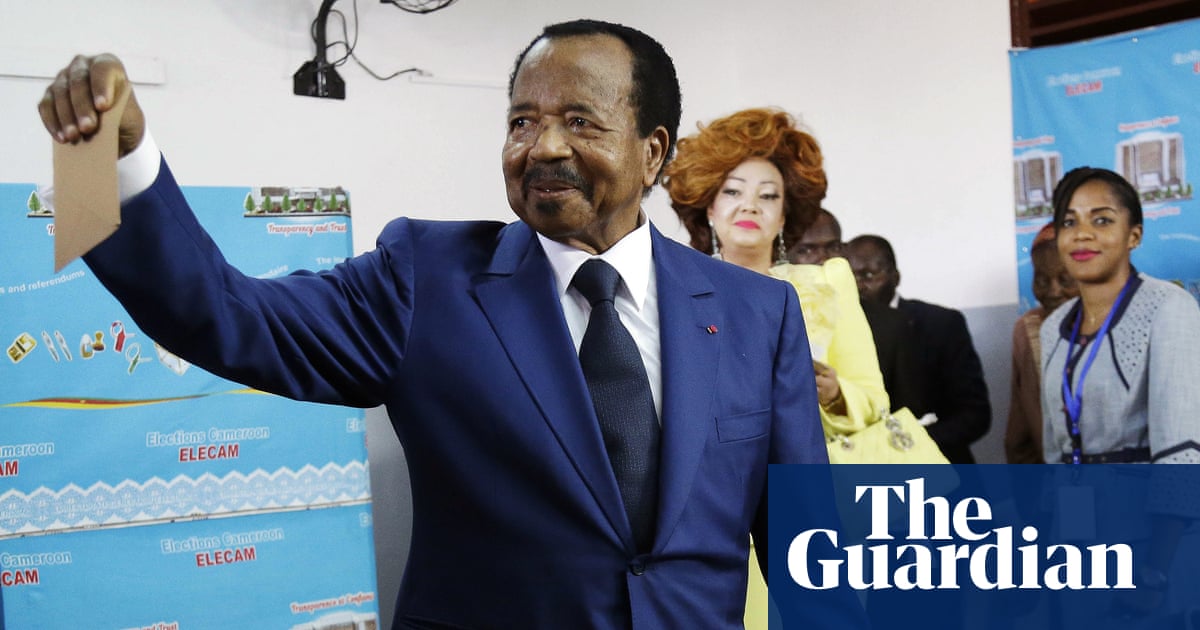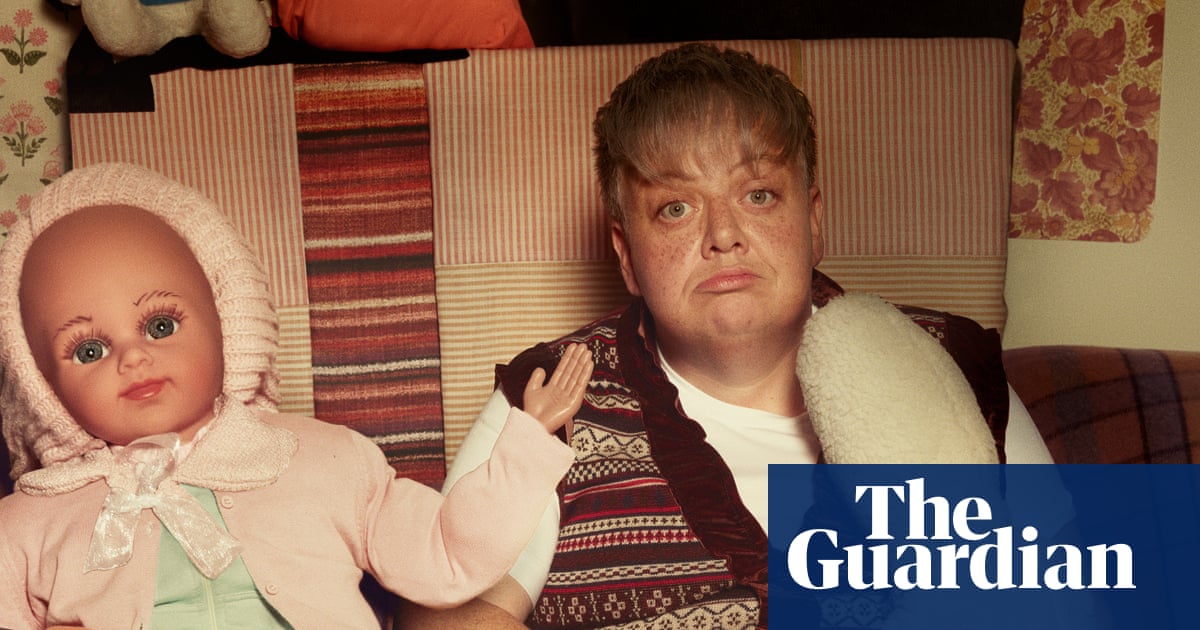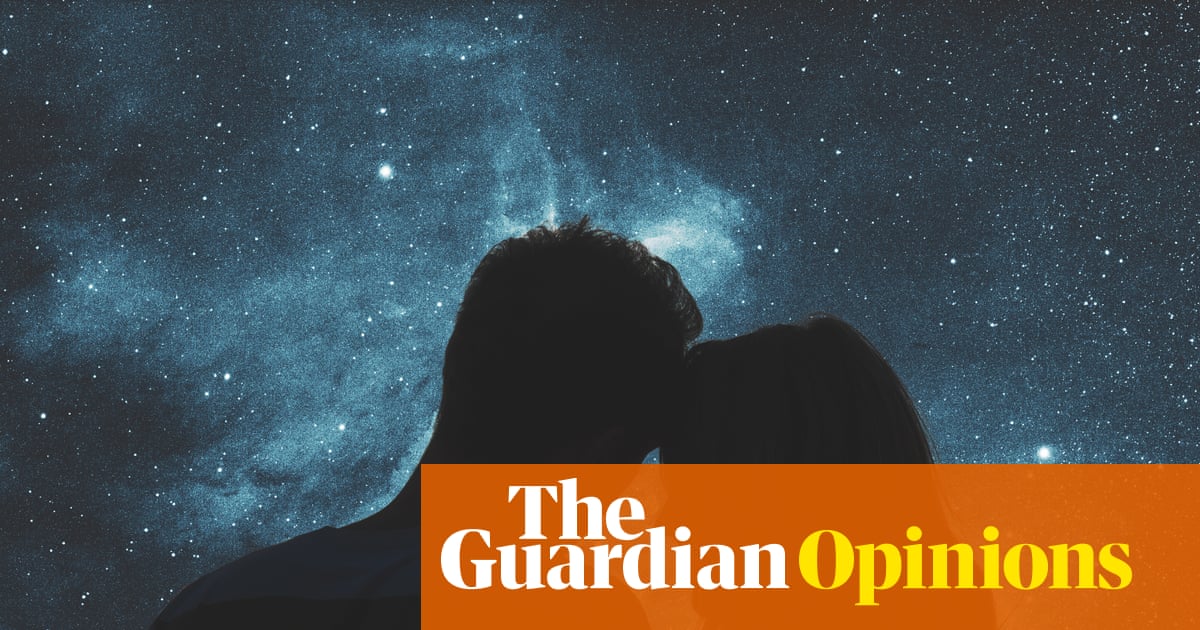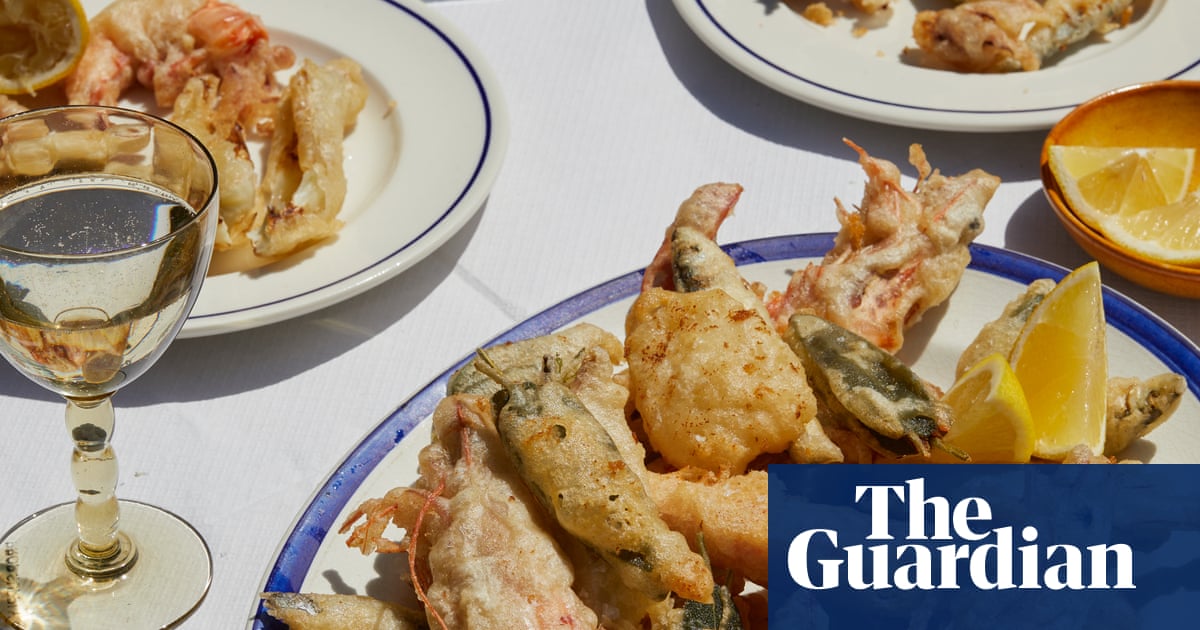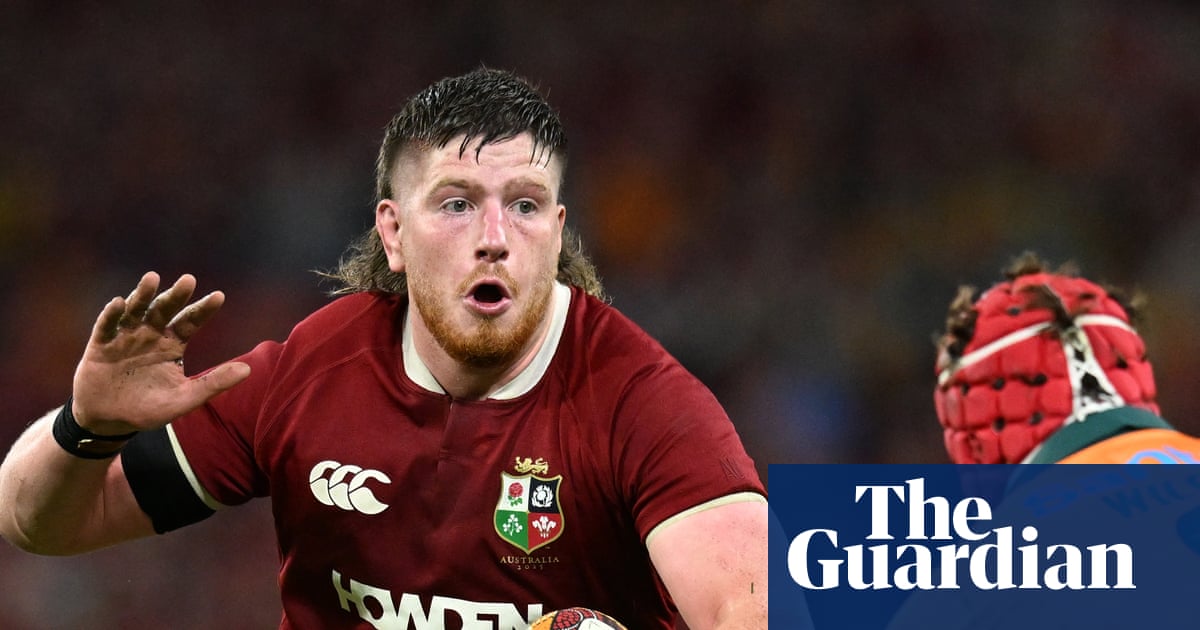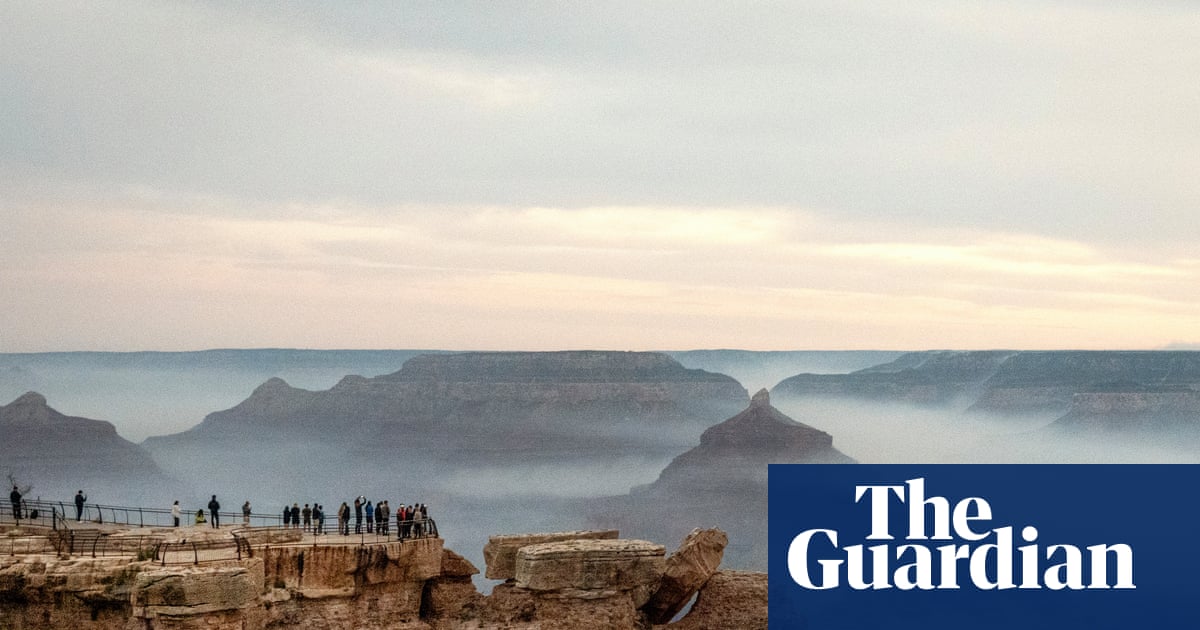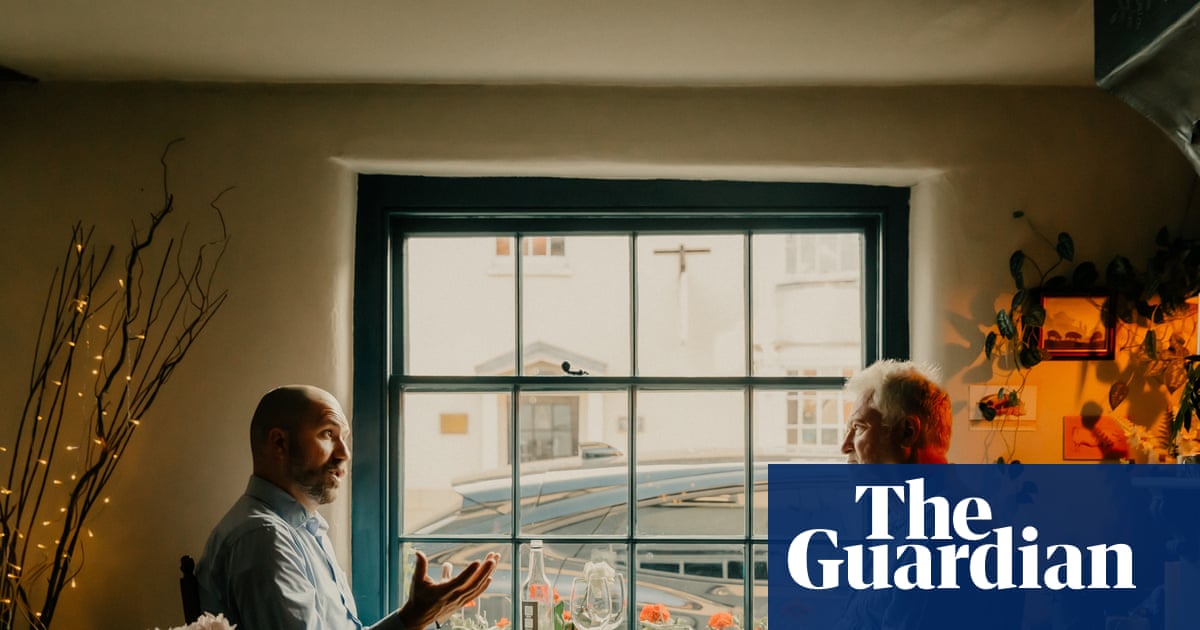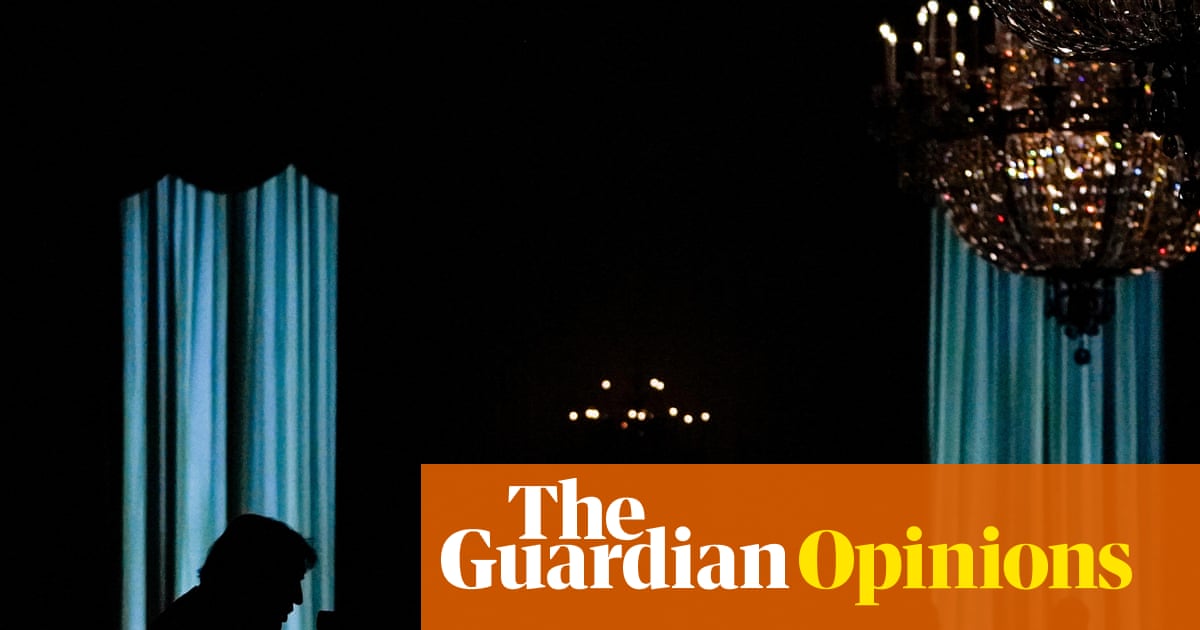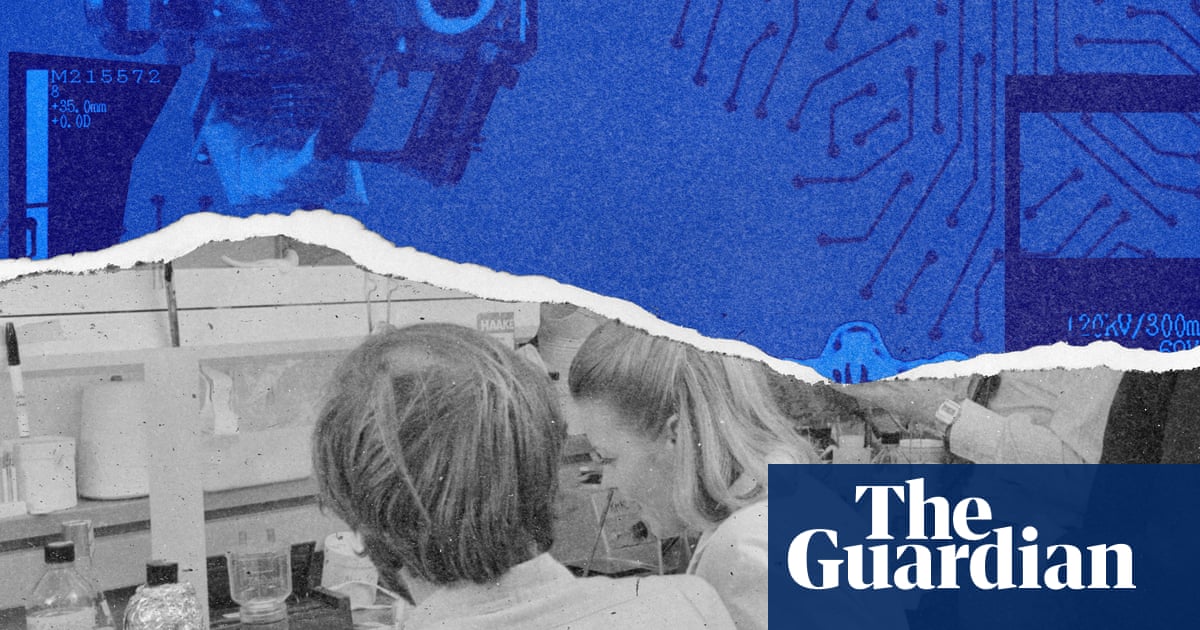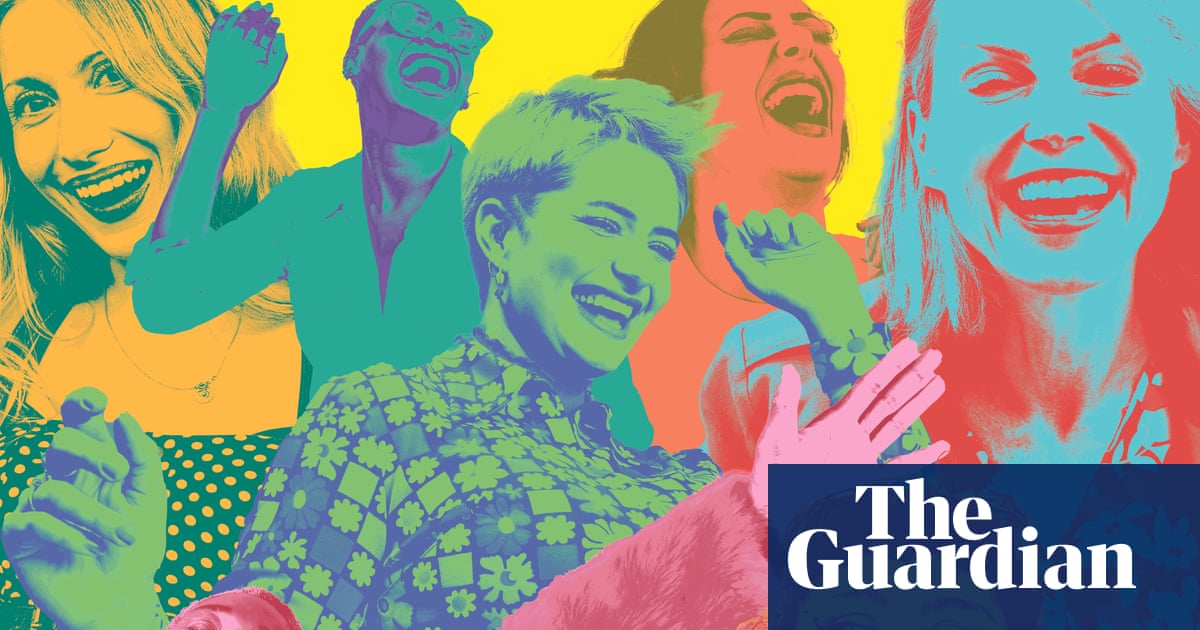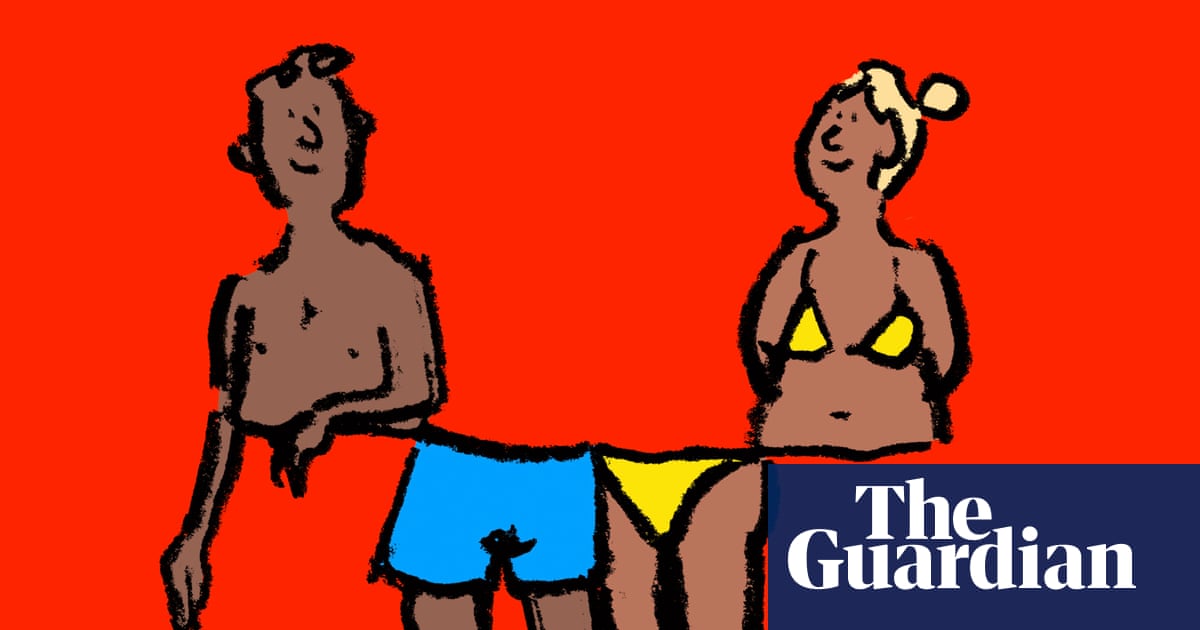“I looove to lie,” sighs Reneé Rapp happily, sounding like a kid who has just discovered a new favourite toy. She’s talking about using creative licence in her songs, and how she realised, while working on her second album, that she didn’t have to stick to the truth of her own experience 100% of the time. But for a journalist, the admission – and her apparent glee about it – demands a follow-up: has she lied at all in the last 40 minutes?
I expect Rapp, 25, to wave away the question. Instead she pauses, seeming to give it real thought. “Have I lied? You know, I don’t think so,” she eventually concludes.
I’m still not sure if I believe her, but that’s part of the joy of Reneé Rapp. Whether you’re in her company or merely count yourself a fan, she gives the impression of being authentic, outspoken and honest, sometimes to her own detriment. But then, there’s a moment – a glint in her eye, or an edge to her tone that tips it into deadpan – when you have to wonder: is she being for real?
We’re meeting at a cafe in King’s Cross on one of the first hot days in June. Even at the discreet corner table, Rapp radiates star power – jewel-tone shirt dress, sweater draped around her shoulders just so, heeled black boots despite the sweltering heat – and that kind of implacable confidence that’s both sexy and a bit scary. I don’t think the waiting staff recognise her, but they nevertheless seem flustered, bungling her coffee order.
In fact, Rapp is more friendly and approachable than suggested by her glamorous, pull-no-punches image and on-screen association with preppy queen bees. Her breakout role was Regina George in the Broadway musical Mean Girls, followed by a turn as initially closeted, privileged daddy’s girl Leighton Murray in Mindy Kaling’s sitcom The Sex Lives of College Girls. (Queen bee Regina George would never labour to reassure a waiter, as Rapp does, that she was happy – nay, thrilled – with a hot coffee after having ordered a cold one.) Since then, Rapp has also made her name as a pop star. Her debut album, Snow Angel, released in 2023, received positive reviews for its assured, R&B-infused pop.
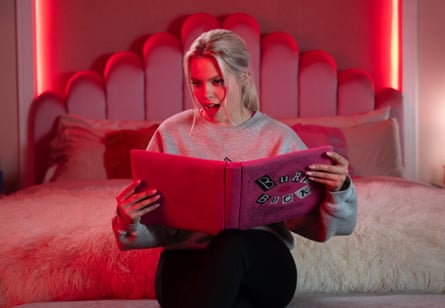
But Rapp’s star really began to rise early last year with her press tour for the film adaptation of the Mean Girls musical. From blasting the “asshole” owner of a tour bus company, to praising rapper (and collaborator) Megan Thee Stallion’s ass as “the best” she’s ever seen, to admitting to being ageist against millennial women, Rapp’s interviews were candid to the point of chaotic. Instead of opprobrium, her apparently off-the-cuff comments were met with widespread approval online, boosting her profile and sparking a running joke about her apparent lack of a filter: when guest-starring on Saturday Night Live during that time, Rapp was jokingly sentenced to “40 hours of court-ordered media training”.
Rapp’s reputation for being refreshingly unfiltered, compared with the carefully crafted statements commonly made by celebrities today, initially took her by surprise. “It’s very weird, honestly, to be perceived that way, because I don’t really think about it,” she says.
It’s true that Rapp does seem less guarded than many celebrities of her age and experience, but at the same time, she doesn’t court controversy or spout uninformed views.
When she set out to become a singer, Rapp continues, “I never thought about how people would dissect even the way you speak”. It’s confusing that she’s become known for her media appearances, she says. “Like, wait, what would a normal response be? A fluffy, nonsense answer?” I’m afraid so, I say; but she’s not awaiting confirmation – she’s already off, her intensity rising as she speaks. “To me, that would make me crazy – if I was a journalist, that would drive me fucking up the wall!” (Yes, Reneé.) “Because I would be like, ‘Hang on, we’re not even like having a conversation’.” Her eyes behind her blue-tinted aviators flash. “That would make me insane.”
But the expectation that Rapp will always speak her mind has raised the stakes ahead of her second album Bite Me, out next month. The six tracks made available before our conversation were mostly heartfelt love songs, showing off Rapp’s powerful voice and confessional lyrics. But the tone was set by the Joan Jett-referencing lead single Leave Me Alone, building on the public image of Rapp as a party-girl pop star who refuses to be tamed. “Sign a hundred NDAs, but I still say something,” she drawls.
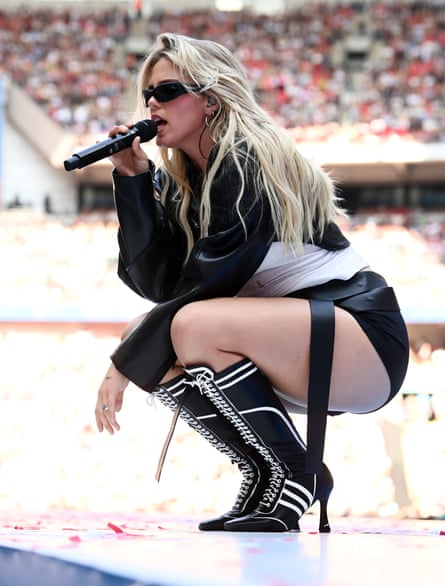
In the first major media appearance of her album promo campaign, with comedian Ziwe, Rapp confirmed she’d still not received any media training before going on to discuss her 4.5-star rating on celebrity foot rating site WikiFeet (“I’m so angry, my friends have five!)”, whether her great-grandparents owned slaves (she suspects they did) and which she “gave less of a fuck about: women’s rights or gay rights”. (Gay rights, for the record.) But I wonder if – refreshing though it may be – this no-holds-barred persona might sometimes work against Rapp, preventing her from being taken in earnest while seeding the idea that, in her company, anything goes. The day before our interview, Rapp held a Q&A for fans in London that was reportedly derailed by a small group who appeared to have had too many of the Reneé-themed cocktails.
Rapp says now that she doesn’t feel pressure to be consistently “iconic” or chill in her press appearances – but she doesn’t deny that this Q&A didn’t go to plan. Rapp had been looking forward to getting into her new album with fans who cared about the nerdy detail. Instead, she struggled to hear their questions over the disorderly minority. “Honestly, it just made me sad.”
The real sour note came afterwards, when she and Towa Bird – her British musician girlfriend – were rushed by fans while trying to get in a lift. I try to clarify exactly what happened, but Rapp seems unsure of the details herself. “To be honest, I kept my head down.”
But she has no doubt about how it made her feel. “People running after you, into a fucking elevator bank – it’s such weird behaviour,” Rapp says, outraged. “I was so pissed, I was so upset. I was like: ‘You don’t get to chase my girlfriend and me – that’s not fine’.”
At the same time, she sees it as part of the deal of being famous. “I don’t like to be disrespected, but I also understand that I’ve signed up for this shit, to an extent.”
Indeed Rapp’s truest ambition was to be a pop star; she got into acting, she’s said, as a means to an end. As a child growing up outside Charlotte, North Carolina, she wanted to be Beyoncé – and to get out of her small, now Maga-voting town, Huntersville. “I just didn’t feel very comfortable there,” she says, pointing to her showbusiness aspirations and her emerging sexual identity.
Well before she first came out (as bisexual, in 2022; she now identifies as a lesbian), Rapp was the only white girl within her friend group, she says. Her mother would tell her to never turn right out of their neighbourhood – it wasn’t safe for her and her friends. “Everybody has rifles, and if you look at them the wrong way, they will shoot you,” Rapp recalls. Today, she says, “there’re people who live in the neighbourhood that I grew up in, who don’t speak to my parents because I’m out.” It doesn’t bother Rapp or her family, she says with forceful disdain. “I’ve never asked for the approval of conservative white bigots – I’m certainly not going to start now.”
She is equally outspoken about Palestine: speaking at the GLAAD Media awards in April 2024, she called for an “immediate ceasefire and permanent ceasefire”, and today has no qualms about denouncing “the genocide” under way. When I ask if she’s ever been advised not to comment, or to use different phrasing, Rapp doesn’t say she hasn’t. “It’s interesting, people would often mask it as ‘That verbiage may make people uncomfortable.’ I would argue that people being slaughtered makes me uncomfortable and should in fact make you uncomfortable.”
Rapp feels obliged to speak out not just because it’s the right thing to do but, she says, because it’s so much harder for non-white women. She admits she was shocked when she first moved to New York in 2019, to join Mean Girls on Broadway and discovered “that people are still conservative bigots there”. Rapp starred in the show for about seven months before Covid brought it to a premature close.

Now living with Bird in a “seemingly white-liberal-ass neighbourhood” of Los Angeles, Rapp says there are “extremists” a few doors down, with signs in the windows warning “We’re armed”.
“Especially with our current administration, it’s just so in your face – the hate for people who could be considered ‘other’,” she says. “There’s just direct hate, and it’s so loud.”
When I ask Rapp where she got the confidence to speak her mind, she answers simply: “I have phenomenal parents.” Her father, Charles, and mother, Denise, instilled in Rapp and her brother the importance of hard work and personal accountability.
“They were just always like: ‘Be accountable to yourself, to your friends, to people you don’t know,’” she says. What Rapp took away was that “there’s no shame in being wrong, necessarily”; what mattered was being able to “look in the mirror” and hold your head up high.
Though she is grateful for that foundation, it wasn’t always easy: even when Rapp was very young, her parents didn’t hold back in their feedback on her performances. Rapp recently claimed that Denise even gave her daughter an alliterative name, “just in case” she wanted to become a pop star.
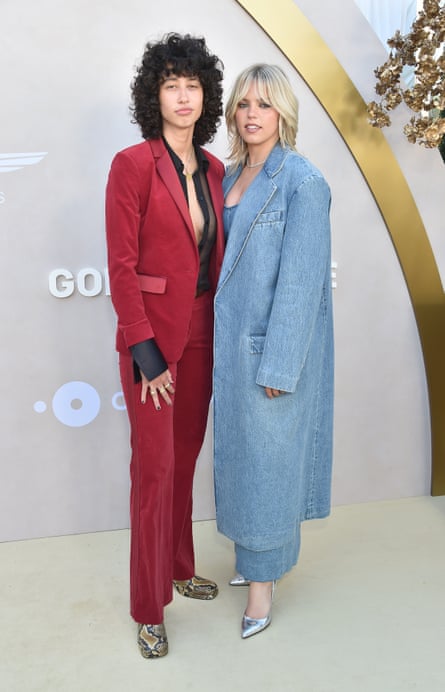
Today her parents are among only a handful of people who she can count on to be brutally honest with her, along with Bird – and maybe “two people” on her team.“I don’t trust anyone,” she says, “and I don’t say that in a ‘Oh, no, I feel lonely!’ way – I know that there are so many people who are never going to be honest with me. I think everyone is lying to me, all the time.”
It perhaps explains her own premium on public-facing authenticity. Even when she says she loves to lie, it seems it’s only about the things that don’t matter.
I put it to Rapp that, where other pop stars might be blandly noncommittal, her own strategy for getting around difficult questions she doesn’t want to answer is to deploy humour. “Exactly,” she says, like I’m her pupil giving her a correct answer.
Of course, a veneer of authenticity can also be a way of obfuscating what someone really thinks. Her single Leave Me Alone is a prime example: the line where Rapp crows “I took my sex life with me, now the show ain’t fuckin’!” went viral for seeming to allude to her departure from The Sex Lives of College Girls (there were rumours that cast members had questioned her sexuality). Online, the show’s fans decried the line as tacky and disrespectful of the role that made her famous; Rapp’s fans said she was only being “iconic” again.
Rapp only stirred the pot further in her interview with Ziwe, describing Sex Lives as being “such a good experience” in a way that played equally as sarcastic or sincere. “I wish I could go back,” she said, deadpan. Even whip-smart Ziwe seemed to fall for it, inquiring: “Really?” “Nope!” Rapp shot back.
When I tell her about the online debate raging over her intentions, Rapp gives a Cheshire cat grin. “It’s like Beyoncé said: ‘You know you that bitch when you cause all this conversation.’”
Having previously approached songwriting as an exercise in truth-telling, Rapp discovered with this album that she could embellish her experiences and even make things up without sacrificing emotional truth. She doesn’t feel the need to respond to speculation about what her songs are about.
I ask Rapp if she gave her former Sex Lives co-stars a heads-up about the “show ain’t fuckin’” line. “I didn’t write it,” she says instantly. I’m momentarily flummoxed. Rapp spies her chance and runs with it. “I’ve not heard of that show, is it good?” she continues, cocking her head as though earnestly engaged.
It takes me a beat too long to realise – she’s messing with me, right? “Yep.”
Reneé Rapp’s new album, Bite Me, is released on 1 August.

 4 hours ago
6
4 hours ago
6
